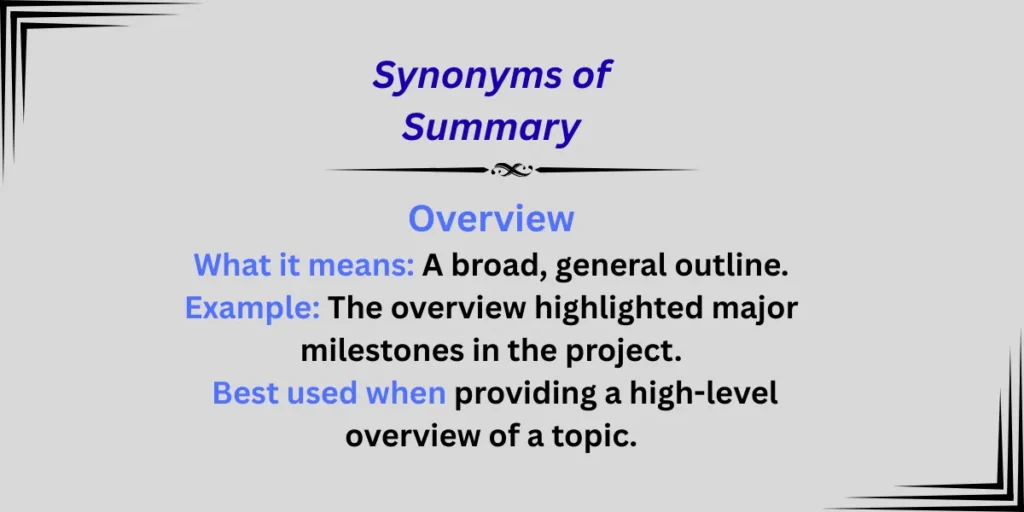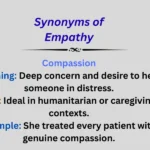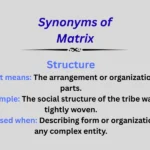We all write a summary at some point. It can be a short version of a book, a movie, a story, or a project. A summary helps people understand the main idea quickly. But synonyms of summary can give you more options. Some words fit school work, some fit your job, and some fit creative or fun writing. Using the right word makes your idea clear, strong, and easy to read.
In this article, you will find 30 useful synonyms of “summary.” Each word comes with a simple meaning, an example, and tips on when to use it.
By the end, you will know how to pick the best word for your work, writing, or projects. This guide will help you write more effectively and make your ideas easier for everyone to understand.
What Does Summary Really Mean?
- Definition: A brief account of the main points of a longer work or discussion.
- Purpose: To provide clarity, remove unnecessary details, and highlight the key takeaways.
- Tone: Neutral, academic, or formal—but sometimes too dry or overused.
Synonyms of Summary – With Usage Tips
1. Overview
What it means: A broad, general outline.
Example: The overview highlighted major milestones in the project.
Best used when providing a high-level overview of a topic.
2. Recap
What it means: A brief repetition of key points.
Example: Let’s do a quick recap of last week’s meeting.
Best used when: You want a casual, spoken-friendly summary.

3. Synopsis
What it means: A condensed version of a story or plan.
Example: The film’s synopsis promised mystery and suspense.
Best used when: Summarizing stories, films, or creative content.
4. Abstract
What it means: A summary of research or academic work.
Example: The paper begins with an abstract of the findings.
Best used when: Writing scholarly or research-based summaries.
5. Digest
What it means: A condensed version, often simplified for easier reading.
Example: She reads a daily news digest every morning.
Best used when: Summarizing for quick reading or general audiences.
6. Outline
What it means: A structured breakdown of main points.
Example: The essay outline helped her organize ideas logically.
Best used when: Structuring ideas before writing or presenting.
7. Brief
What it means: A short written summary, often in professional contexts.
Example: The policy brief was presented to the board.
Best used when: Creating concise, formal summaries in business or government.
8. Condensation
What it means: A shorter form that retains essential ideas.
Example: The article was a condensation of the full report.
Best used when: You want to emphasize the distillation of dense material.
9. Highlight Reel
What it means: A collection of standout moments or details.
Example: The athlete’s highlight reel showed her best plays.
Best used when: Creating engaging, attention-grabbing overviews.
10. Snapshot
What it means: A quick, vivid impression of something.
Example: The introduction gives a snapshot of modern urban life.
Best used when: Offering a short glimpse into a larger reality.
11. Rundown
What it means: A quick list or explanation of key facts.
Example: He gave me a rundown of today’s agenda.
Best used when: Using casual or conversational language.
12. Gist
What it means: The main point or essence.
Example: I didn’t read the whole article, but I got the gist.
Best used when: Speaking casually or informally summarizing.
13. Precis
What it means: A concise and elegant summary.
Example: She submitted a precis of the novel’s themes.
Best used when: Writing with elegance and precision.
14. Breakdown
What it means: A detailed deconstruction into parts.
Example: Here’s a breakdown of your monthly expenses.
Best used when: Providing both summary and detail in lists.
15. Bullet Points
What it means: Condensed notes in list format.
Example: He presented the findings in bullet points.
Best used when: Making easy-to-scan summaries or presentations.
16. Snapshot Summary
What it means: A short, visual-style summary.
Example: The dashboard provides a snapshot summary of key data.
Best used when: Using data visuals or dashboards.
17. CliffsNotes
What it means: A simplified summary of a book or topic.
Example: I read the CliffsNotes before the exam.
Best used when: Referring to quick-study resources or simplified guides.
18. Executive Summary
What it means: A concise report summary for leaders.
Example: The executive summary focuses on profits and strategy.
Best used when: Addressing executives, stakeholders, or business readers.
19. Key Takeaways
What it means: The most important points or lessons.
Example: Let’s end with the key takeaways from this webinar.
Best used when: Emphasizing lessons or insights from a discussion.
20. Sketch
What it means: A rough or simplified account.
Example: The intro gives a sketch of her background.
Best used when: Offering a light or early summary before going deeper.
21. Outline Note
What it means: A high-level note form of longer content.
Example: The outline note includes dates, tasks, and roles.
Best used when: Planning or referencing structured content.
22. Overview Note
What it means: A short memo or note with a general explanation.
Example: He sent me an overview note before the meeting.
Best used when: Sharing updates in email or internal communication.
23. Recitation
What it means: A verbal summary or repetition of key facts.
Example: She began with a recitation of last week’s findings.
Best used when: Referring to oral summaries, often formal.
24. Abstract Recap
What it means: A short-form intellectual summary.
Example: His abstract recap helped everyone grasp the main idea.
Best used when: Bridging academic and general audiences.
25. Synopsis Brief
What it means: A blend of summary and strategic outline.
Example: The synopsis brief touched on goals and risks.
Best used when: Mixing creative and business tone.
26. Topline Summary
What it means: A headline-level version of key data or content.
Example: The CEO received a topline summary of the results.
Best used when: Providing high-level, executive-facing briefs.
27. Condensed Version
What it means: A shorter version of something long.
Example: She read the condensed version of the report.
Best used when: Keeping tone neutral or simple.
28. Highlight Summary
What it means: A summary focused on key moments.
Example: The email included a highlight summary of the trip.
Best used when: Recapping events or projects with visual appeal.
29. Compendium
What it means: A compact collection of information.
Example: This book is a compendium of Greek myths.
Best used when: Referring to informative or collected works.
30. Essence
What it means: The core meaning or spirit of something.
Example: The poem captures the essence of childhood.
Best used when: Writing poetically or emotionally summarizing a theme.
🎯 How to Choose the Right Synonym
Here’s a breakdown by tone and situation:
| If your tone is… | Use words like… |
| Formal/Academic | Abstract, precis, compendium, recitation, executive summary |
| Casual/Conversational | Recap, gist, rundown, bullet points, highlight reel |
| Creative/Storytelling | Synopsis, sketch, essence, snapshot, cliffsnotes |
| Business/Professional | Brief, topline summary, key takeaways, overview, synopsis brief |
| Visual/Modern | Highlight summary, snapshot summary, digital digest, outline note |
Final Thoughts:
Using the right words makes your writing clear and easy to read. A summary shows the main idea, but picking the best synonym can make your message stronger, sharper, and more precise. Now you have 30 easy synonyms of summary, each with examples and tips. You can use them in school assignments, work reports, articles, or creative writing.
The right word helps your readers understand your ideas quickly. Keep this guide of synonyms of summary handy, and you will always know how to choose the perfect word.
With these options, your writing will be simple, clear, and powerful every time.


